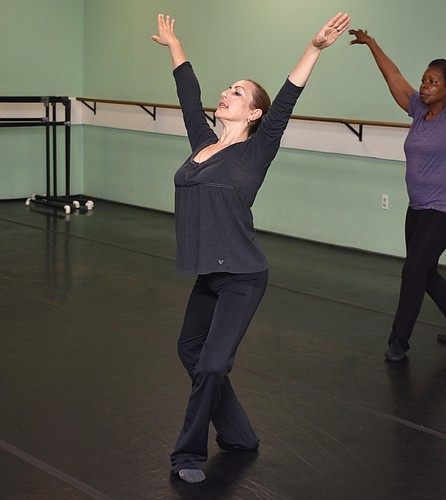- July 13, 2025
-
-
Loading

Loading

Some people stick with their childhood hobby into their teens. Some even return to it later in life through adult recreational sport leagues or senior art classes. Tania Vergara Pérez made a career out of it.
Vergara Pérez studied ballet for eight years while growing up in Camagüey, Cuba. After receiving her dance degree, she taught at Cuba’s prestigious National Ballet School from 1986 to 2013. She also founded the Cuban contemporary dance company Endedans, for which she was also the director and choreographer. After moving to the U.S. in 2014, she started teaching at the School of Ballet Arts in Lake Worth before joining the faculty of the Sarasota Cuban Ballet School. She has since become a sought-after (and award-winning) choreographer across the U.S. and Cuba.
We sat down with the choreographer and master teacher ahead of the school’s July 27 summer intensive performance to learn about her artistic journey and what it’s like choreographing for students from across the U.S. and the world.
I love the serious work ethic here. Everyone is very focused and very committed. Also, everybody is close — it’s like a family, and that’s so important.
Ballet, pointe, character dance, contemporary, etc. After I got my degree, I tried to find my own way to express my feelings. Step by step I found a different way to express myself other than classical ballet — contemporary.
Because it’s more free. It’s more real. Ballet is a magic story, but I think contemporary movement is closer to what you want to say about yourself. It’s really what’s in your heart and veins.
I had a great life in Cuba. I ran my company, and we traveled to different countries. But with my family, it was hard because of the economy. I have two kids, and they wanted to know another place, and I was worried about our future there. When my husband won the [green card] lottery, we found a way to start again with a new opportunity here.
It’s different. In Cuba, we are more strict because the school in Cuba is to make you a professional dancer. But here we have students who want to reach professional life and others who just want to learn something. This school is special because you can be more serious, but it’s still not like Cuba.
It’s exciting to me to meet students from other countries, especially Japan, because they have such good technique and are so disciplined and focused. I love that.
I love working with a lot of people on stage. It’s a challenge for me, doing something beautiful with a lot of people. My last piece was with Cuban music, and the kids didn’t know salsa or afro steps. When I introduced my afro steps in class, they loved it. When I introduced the Cuban music, they thought they couldn’t do it because it’s not close to [that genre]. But step by step, they started to love it, and by the end everyone wanted to dance salsa — and they told me they started to listen to Cuban music.
The good thing is everyone has ballet as a similar background. But I use the best of everyone. I depend on the spirit they give to me, the commitment that they give to me.
They need to be disciplined and passionate, and they need to be able to deal with frustration. Not everything is rainbows and happiness. You need to suffer a little bit. You need to work hard.